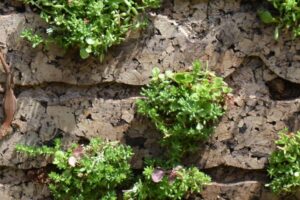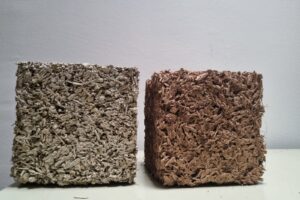
AI to detect soil water response
May 8, 2024
ECOSUN: Improvement of efficiency in thermal and photovoltaic cogeneration systems
June 5, 202416/05/2024
The Centre for Advanced Technologies in Mechanics (CATMech) at the Universitat Politècnica de Catalunya - BarcelonaTech (UPC) is involved in a project to explore additive manufacturing technology with concrete to provide innovative solutions to the construction market. The project, called ADRIANO, aims to develop a real-time control system for the concrete manufacturing process, to estimate the expected outcome and anticipate decision-making on its various stages.
To achieve this, the pumping phase is monitored with the pumping system. The output is sensed at the time of printing. The evolution of the mixture once it has been placed in the final product and the output phase of the material that has already been mixed are also monitored. The sensors measure aspects such as moisture, temperature, flow rate and pressure. They collect a set of data that is compared with other standard tests, which allows the definition of properties of the mixture: workability, pumping capacity, construction ability and estimation of opening time, among others.
The CATMech group is in charge of the operation of the printing machine, the sensors, the contrast tests and the data analysis. The tests are carried out at the FactoryLab facilities of the School of Industrial, Aerospace and Audiovisual Engineering of Terrassa (ESEIAAT).
As a result, this monitoring will optimise the manufacturing process and control production to obtain higher quality parts and reduce time and material losses.
Budget and financing
In addition to CATMech of the UPC, the project, which has a budget of 73,927.05 euros, involves VIAS and Construcciones. ADRIAN started in July 2021 and will end in July 2024. It has received funding from ACCIÓ, the Agency for Business Competitiveness.


Sector
Topic
You want to know more?
Related Projects
- A research team from the inLab FIB at the Universitat Politècnica de Catalunya - BarcelonaTech (UPC), together with the Asociación de Personas con Movilidad Reducida (AsoPMR), has taken part in the Spot4Dis project to enhance the mobility and autonomy of people with reduced mobility.
- The La Volta project foresees the construction of a large Catalan vault pergola within the Llars Mundet campus, in the Montbau neighbourhood (Horta-Guinardó district). This structure will become a new architectural landmark for Barcelona, combining traditional construction techniques with contemporary innovation. The project involves the Rehabilitation and Architectural Restoration Research Group (REARQ), at the Universitat Politècnica de Catalunya - BarcelonaTech (UPC), and is led by the Architects’ Association of Catalonia (COAC) and the Barcelona Provincial Council.
SATE-VEG: A system for energy renovation of buildings that helps reduce the urban heat island effect
Researchers from the Architecture, Energy and Environment (AiEM) group at the Universitat Politècnica de Catalunya - BarcelonaTech (UPC) have developed SATE-VEG, an external thermal insulation system with a vegetal coating that offers seasonally adaptive thermal behaviour, enhances urban biodiversity and promotes positive health effects. The system is made from organic materials, requires low maintenance and consumes minimal water.- A research team from the Interdisciplinary Group on Building Science and Technology (GICITED) at the Universitat Politècnica de Catalunya – BarcelonaTech (UPC) is leading the BioSAFE project, which aims to develop sustainable building envelopes —mainly façades— designed according to sustainability, comfort and safety criteria, with particular attention to their acoustic behaviour and fire performance.




